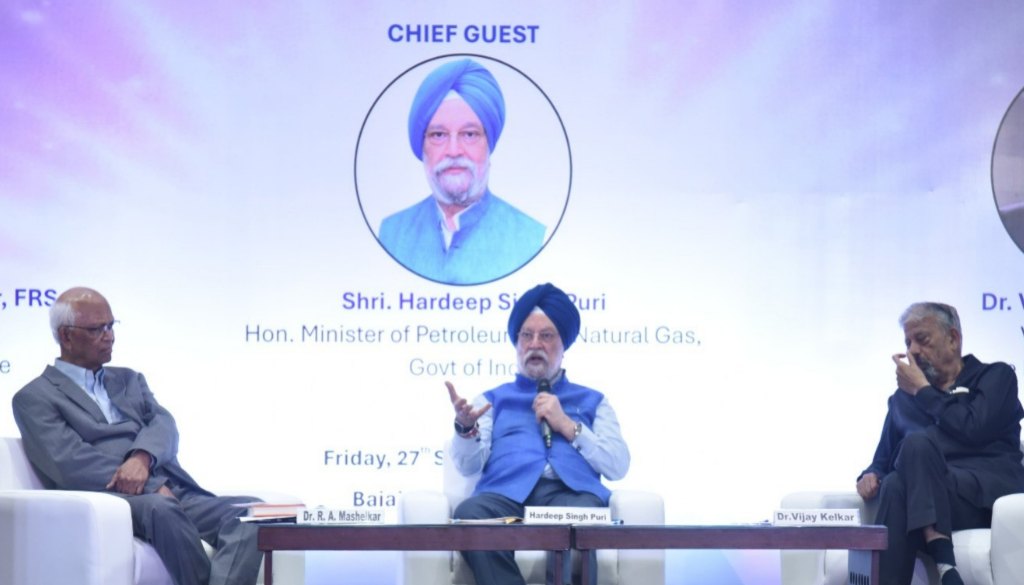Strategic fuel reserves key to India’s energy security: Hardeep Singh Puri

Pune, 27th September 2024: To enhance its energy security, India needs to focus on strategic petroleum reserves and prioritise exploration and production to reduce its heavy reliance on imported fuel, emphasised Hardeep Singh Puri, Minister of Petroleum and Natural Gas, Government of India.
Speaking at the Pune International Centre’s (PIC) 14th Foundation Day lecture, titled “Strategy and Measures for Enhancing India’s Energy Security in the Coming Decade,”Puri highlighted that with a population of 1.4 billion and energy consumption projected to be three times the global average, India is positioned to be a key player in the global energy landscape. Over the next two decades, he noted, India is expected to contribute to 25% of the world’s increase in energy consumption.
While advocating for bringing petrol and diesel under the Goods and Services Tax (GST), he said there were challenges in achieving this due to the differing interests of different state governments and their reluctance to forego revenues from VAT on fuel.
On global oil markets, he said there is no shortage of oil globally, but rising geopolitical tensions could lead to increased oil prices. However, he pointed to the possibility of the US putting more crude oil in the international market after the upcoming US presidential elections.
Pointing out that India’s history in oil exploration dates back to the discovery of crude oil in Digboi, Assam, in the 1880s, he said the government’s clearance for the exploitation of one million square kilometres of sedimentary basin sends a positive signal to investors.
Puri identified three primary challenges to energy security: availability, affordability, and the transition to renewable energy sources. Green hydrogen, he said, represents the fuel of the future but its success depends on local demand and production and technological advancements could help overcome associated cost challenges. As new energy sources emerge, traditional oil cartels will have less influence, he said.
During a lively Q&A session, Puri fielded audience questions about fuel tariffs, the necessity for India to produce LNG carriers, and inclusion of fossil fuels under GST.
In his closing remarks, Dr. Raghunath Mashelkar, president, PIC, reiterated the importance of reducing India’s fuel import bill and advancing renewable energy initiatives. The minister was felicitated by Dr. Mashelkar, and Dr. Vijay Kelkar, Vice President, PIC, who presented him with PIC publications.








